Last Updated on March 18, 2025
In recent years, there has been a considerable shift in home heating systems. The growing trend leans towards more environmentally friendly boilers as opposed to the traditional gas combi boilers of yesteryear. Not to mention the price increase of natural gas either, making a traditional gas boiler more costly to run.
Today, homeowners are looking for green energy alternatives. And this is where the electric combi boiler steps in.
This transition is not just a matter of preference but a proactive response to the urgent need to reduce our carbon emissions to combat climate change. Electric combi boilers offer an attractive answer to this demand and are aligned with the UK government’s ambitious plan of reaching net zero carbon emissions by 2050.
In this article, we’ve scoured the energy market to bring you the best electric combi boiler reviews coupled with their functionality, benefits, and suitability for various-sized homes. They are not only “cleaner” (reducing our carbon footprint) but are also highly energy efficient, converting over 90% of fuel into heat generation.
Contents
- 1 Top 5 Electric Combi Boilers In 2025
- 2 How Does An Electric Combi Boiler Work?
- 3 Decision-Making: Electric Or Gas?
- 4 FAQs
- 5 Conclusion
Top 5 Electric Combi Boilers In 2025
1. Viessmann Vitodens 200-W
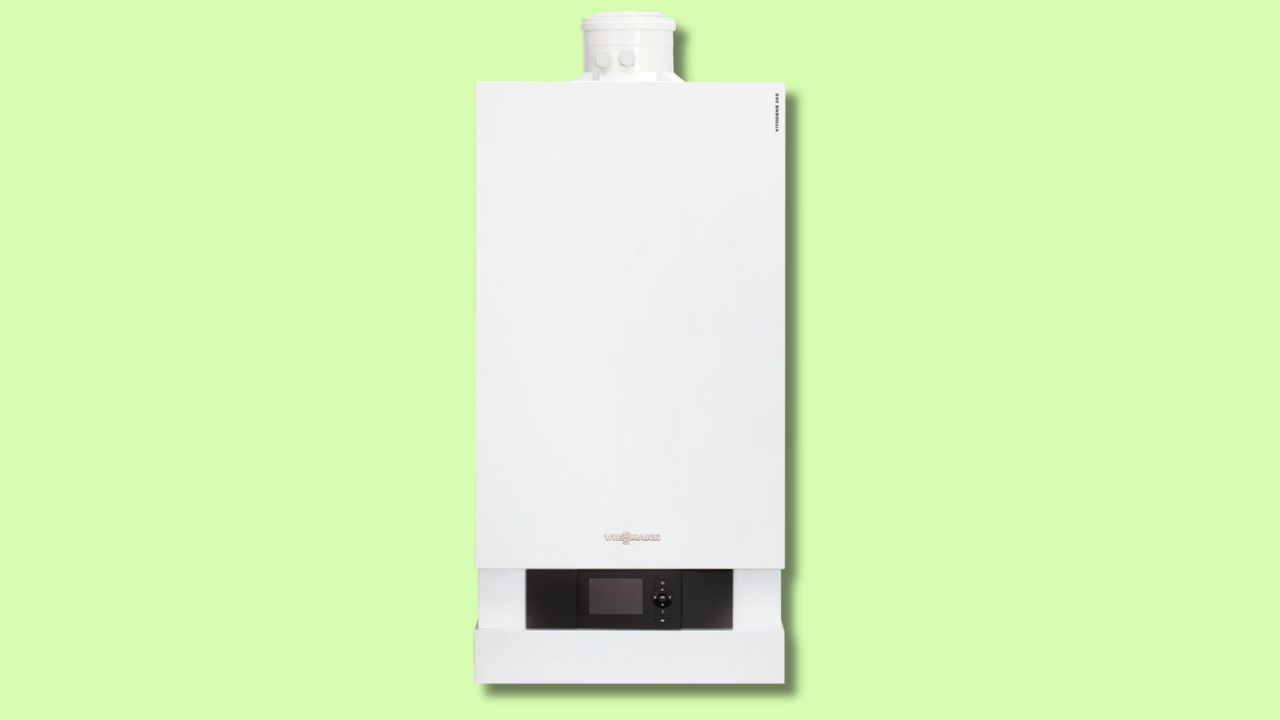
- 89.2% energy rating
- 35 kW system is capable of handling high hot water demand
- 14.3 l/min flow rate
- LPG compatible
- Wall-mounted system
- Quiet operation electric boilers
- High-quality boiler components
- Hydrogen-ready (up to a 20% blend)
2. Worcester Bosch Greenstar 2000
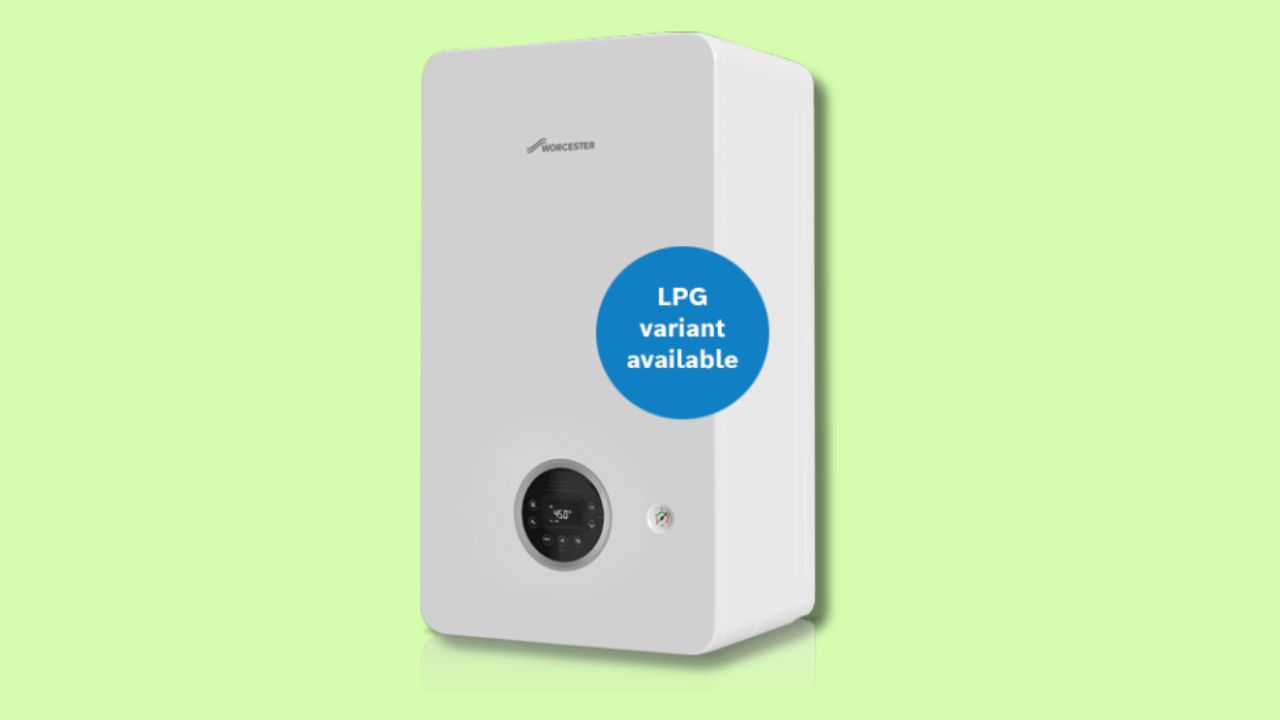
- 90% energy rating (A-grade)
- Compact design
- Quiet operation (47 dB)
- Reliable boiler engineering
- Easy access to internal boiler components
- Improved condensate (wastewater) pipe
- Eco-friendly packaging
- Cheaper to run when compared to a gas or oil boiler
3. Vaillant ecoTEC Plus
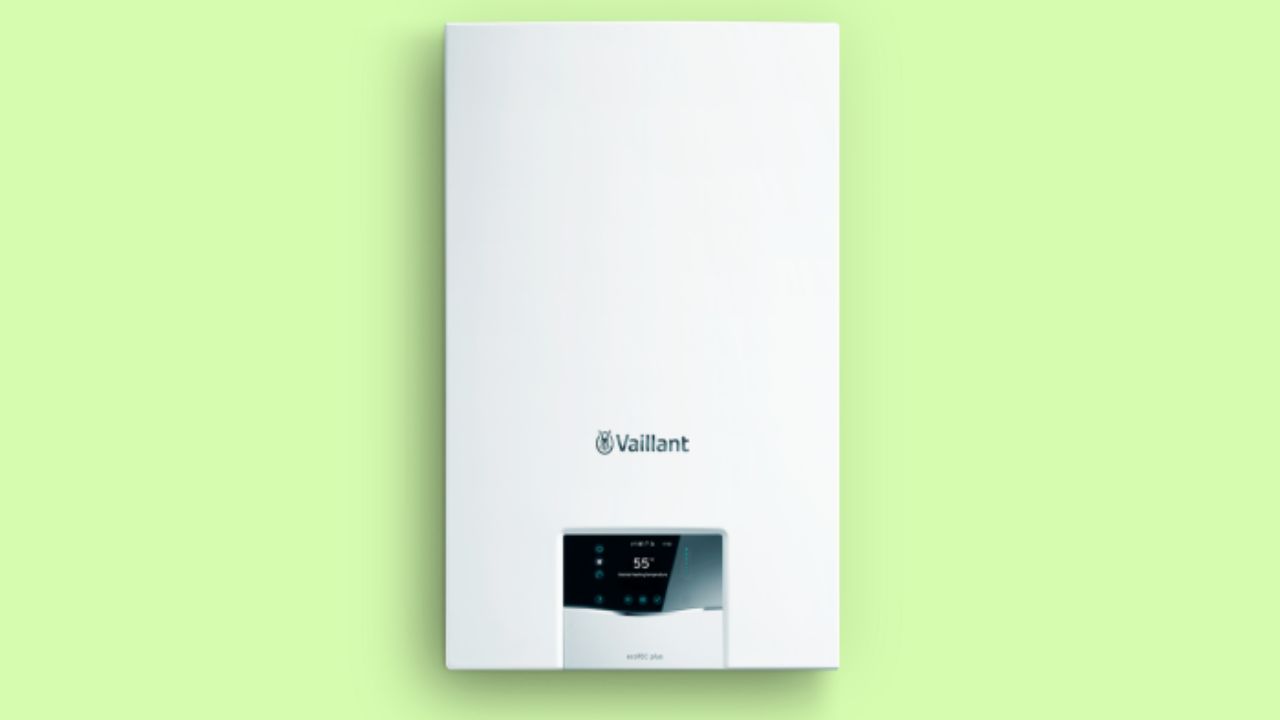
- 89.3% energy rating
- Vaillant’s flagship model electric boiler
- Save up to 30% on your energy bills
- Only the 32 kW model is LPG compatible (other model conversion kits available on request)
- Lower carbon footprint when compared to gas boilers
- 25 kW = 10.5 l/min; 32 kW = 14.3 l/min flow rates
- Compact and lightweight design
- User-friendly controls
- Durable boiler components – including a stainless steel heat exchanger
- Quiet operation with QuickMark recognition
- Hydrogen ready
4. Baxi Duo-Tec Compact
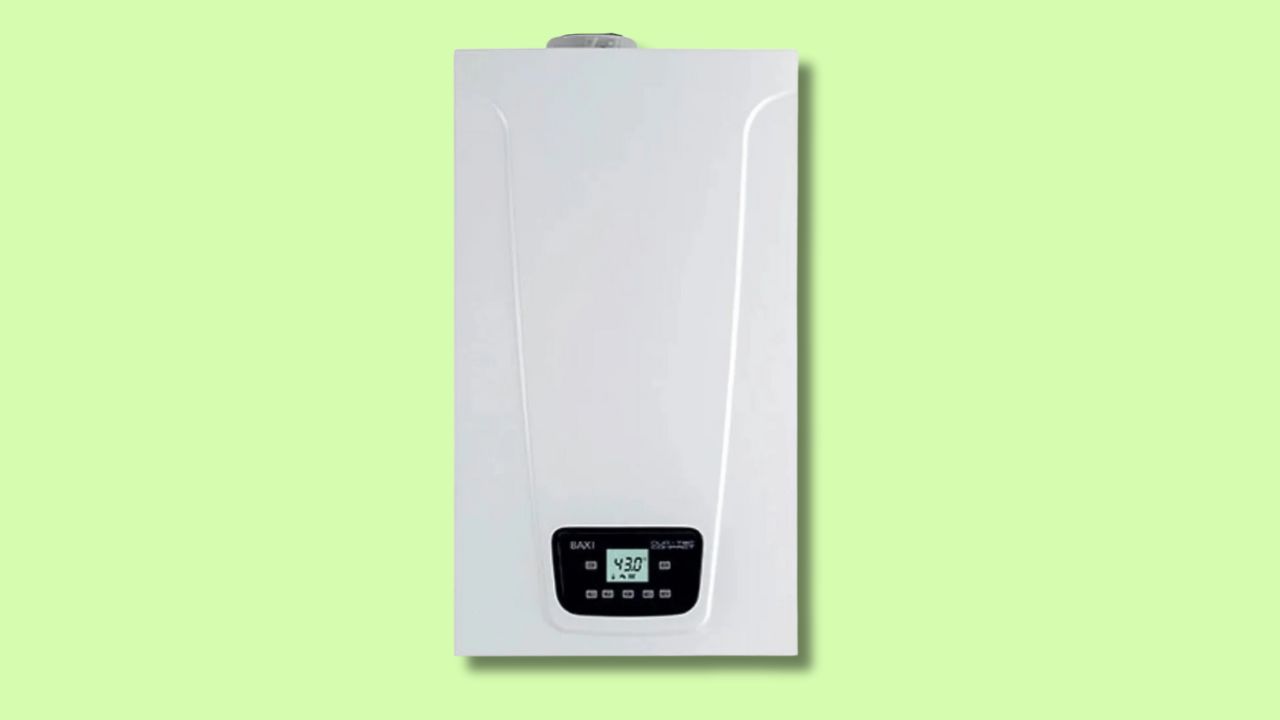
- 92% energy rating
- UK-based manufacturer
- Condensing electric combi boiler
- High-quality brass components
- The twin flue system allows for flexible placement
- 40 kW model = 16.4 l/min flow rate
- Easy to service
- Compatible with smart controls
- Automatic defrost when temperatures are below 5 degrees
5. Electromax by Heatrae Sadia
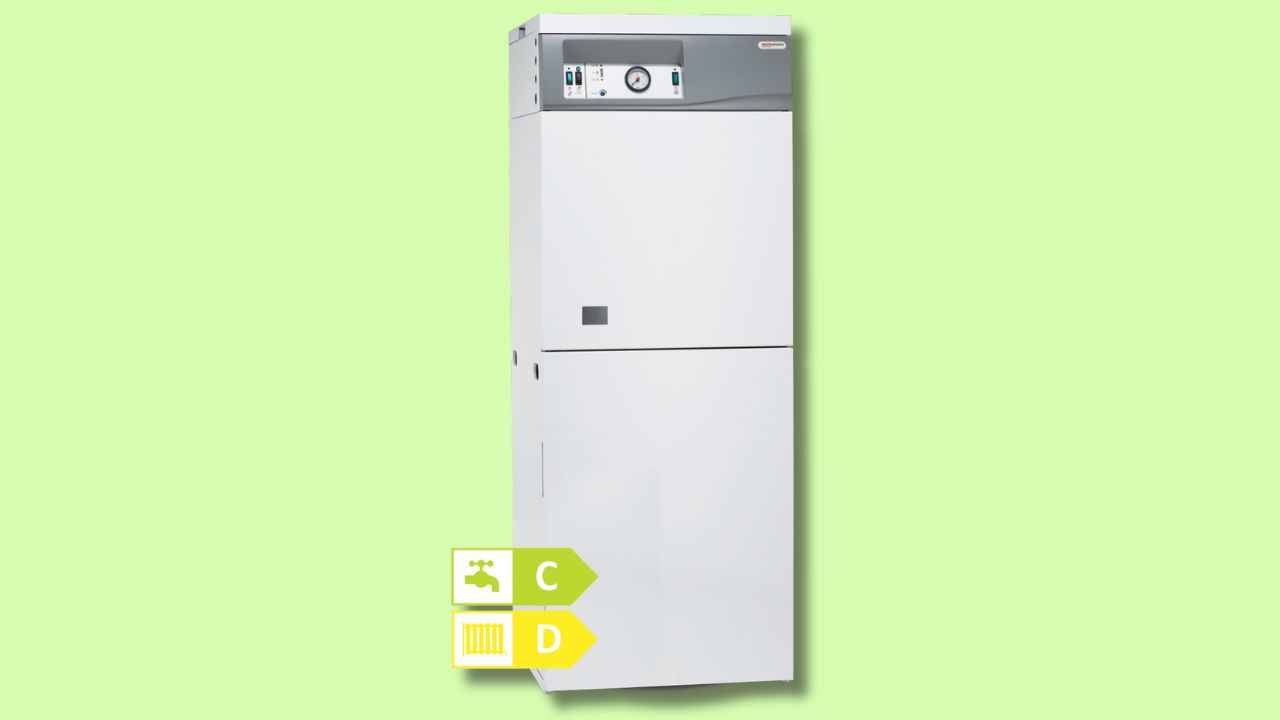
- 99.8% energy rating – highly energy efficient
- 9 kW electric boiler system
- The best electric combi boiler – in our opinion!
- 180-litre unvented cylinder supplies on-demand hot water
- Produces less carbon emission than gas or oil boilers
- Floor-standing electric boiler
- Compact design
- Not LPG compatible
- Quiet operation
- Easy to install
- Low maintenance
How Does An Electric Combi Boiler Work?
- Electric combi boilers work by using fuel – in this case, the electricity supply – to start the heating process.
- The process occurs when cold water enters the heating system and the heat exchanger warms the water up.
- The heating element is like a big kettle element that produces hot water that is pumped through the boiler pipe network to radiators and taps within our homes.
The advantage of an electric combi boiler installation is that they’re very efficient heating systems. They convert almost all the electricity they use into heat, with minimal energy and heat loss. This efficiency not only makes them more eco-friendly but drastically reduces our energy bills too.
Home size suitability
- Electric boilers are particularly suited for small and medium-sized homes and apartments. Their compact size allows for installation flexibility – fitting inside kitchen cabinets – when space can be an issue.
- Their space-savvy size and on-demand hot water make them an ideal choice.
With that being said, combi boilers’ hot water supply may be limited – compared to system boilers which have a separate water tank – when higher hot water demands are needed.
Electric combi boiler vs other types
Electric boilers
Best for: Small to medium-sized homes
| Pros |
| Cons |
Traditional boilers (also known as conventional boilers)
Best for: Larger homes; areas with a reliable gas supply
| Pros |
| Cons |
Electric storage boilers
Best for: Homes with varying hot water needs
| Pros |
| Cons |
Electric Combined Primary Storage Unit (CPSU) boilers
Best for: Larger homes with high hot water demands; commercial properties; areas without access to a gas supply
| Pros |
| Cons |
Dry core storage heaters
Best for: Homes with off-peak electricity; homes needing flexible heating schedules
| Pros |
| Cons |
Compatibility with solar
One of the biggest advantages of an electric boiler, when compared to gas and oil boilers, is its solar compatibility. This makes them an attractive option for green-conscience homeowners. This compatibility is particularly relevant to those who currently have solar panels installed or plan to install them.
Electric boilers can seamlessly integrate with solar photovoltaic (PV) power supply, which allows homeowners to use the electricity generated to power up their electric boiler.
But before you get too excited, there are a couple of things to consider before you opt for solar integration:
- Capacity and usage: The effectiveness of solar-powered electric boilers depends on the capacity of your PV system. This energy generation needs to align (or closely align) with your household’s energy usage patterns and lifestyle. Larger solar systems will generate more heat but if you don’t need that big amount, it could just be wasteful.
- Energy storage: Adding a solar battery storage unit can enhance your solar setup. The excess (or surplus) solar power can be stored in the battery system for later use. This setup prevents wasted renewable energy loss – particularly helpful in times when sunlight is limited.
- Smart management: Smart energy management systems can optimise the boiler’s heating efficiency by directing solar power to the boiler when needed.
Decision-Making: Electric Or Gas?
When it comes to choosing a home central heating system, the decision between an electric boiler or a gas boiler is a common conundrum for homeowners. This choice doesn’t just impact your direct comfort but also has long-term implications regarding running costs, environmental impact, and maintenance.
Understanding the key differences between the two can help you make a more informed decision that aligns with your household’s needs. Here is Eco Happy’s guide to electric and gas boiler differences:
Efficiency
Environmental impact
Running costs
Addressing common myths and misconceptions
Let’s debunk some common misconceptions about the electric boiler!
“Electricity and electric boilers are outdated”
That’s not entirely true. You see, with the UK government’s ambitious plan to reach net zero carbon emissions by 2050 and with the ban on new gas boiler installations by 2025 – electricity is the way to go.
Furthermore, 23 million UK homes currently have gas boiler systems installed on their premises. So, when the time comes to replace these heating systems, electric boilers are the best (and most popular) alternative.
“Electric boilers are not suitable for larger homes”
While electric boilers are generally more suited for small to medium-sized homes, advancements in boiler technology allow these to meet heating and hot water demands for bigger properties.
Take the Baxi Duo-Tec Compact for example – the 40 kW system can withstand high heating and hot water demands and easily connects to underfloor heating. It’s one of the best electric boilers for large homes!
“Gas boilers are cheaper to run than electric boilers”
Gas boiler running costs depend heavily on gas tariffs in your area, although knowing how to reduce your gas bill can be handy to cut down heating costs.
Some areas in the UK have cheaper electricity rates than gas rates – debunking this myth.
According to Ofgem, the UK energy regulator:
- London has the highest electricity charges of £28.43 per kWh
- London’s gas price is £29.42 per kWh
- Yorkshire, for example, has one of the lowest electricity rates in the UK at £26.52 per kWh
- Yorkshire’s gas price is £10.50 per kWh
Advantages of electric combi boilers
We know that fossil fuels are not good for the environment. This means each time we fire up natural gas boilers, more and more greenhouse gases are released into the environment. According to the Institute for Government, home heating systems with gas boilers make up around 14% of all the UK’s carbon emissions!
But you came here for electric combi boiler benefits, so let’s jump to that:
- No need for a gas supply – which is cost-effective for off-grid homes.
- No need to rely on fossil fuels.
- Eco-friendly alternatives by reducing our carbon footprint.
- Solar-powered electric boilers are even more energy efficient!
- Electric boilers have (almost) 100% energy ratings – converting most of the electricity into heat.
- Electric combi boiler installation is cheaper and easier as there is no need for flue or gas line instalments.
- Seamlessly connected to central heating and underfloor heating systems.
Considerations and drawbacks
- Electric boilers typically have higher running costs when compared to gas boilers – in areas with higher electricity tariffs.
- Electric boilers may struggle to cope with higher hot water demands when taps and showers are running simultaneously.
- The flow rate of an electric boiler is generally lower than a gas boiler.
- An electric boiler is best suited for smaller to medium-sized homes; however, larger models make them ideal for bigger properties (with 2+ bathrooms).
FAQs
What is the best electric combi boiler on the market?
The Comet electric combi boiler, from the Electric Heating Company, is the most reliable electric combi boiler on the market and comes with a 2-year (10 years for stainless steel cylinder) guarantee.
Which combi electric boiler is best for larger homes?
The 35 kW Vaillant EcoTec Pro with a 14.3 l/min flow rate is ideal for larger homes. It has a stainless heat exchanger that is durable and less likely to break, saving you money on maintenance and servicing.
Is an electric boiler worth it?
Electric boilers are worth installing. While they are more costly to run based on electricity prices, their maintenance and installation costs are far cheaper than other boiler types.
Conclusion
As we end this electric boiler article, we hope you are more informed to make better boiler buys for your home. Considering factors like the environmental impact, running costs and energy efficiency is key to choosing the best electric boiler suited to your needs.
Understanding that an electric combi boiler is a highly efficient boiler and central heating system in one is great for space-savvy homeowners. These systems connect seamlessly with underfloor heating and are compatible (and more efficient!) when connected to solar power.
If you need help deciding which are the best electric boilers for you, chat with the Eco Happy team today for a free quote. We’ve got you, and your combi boiler covered!
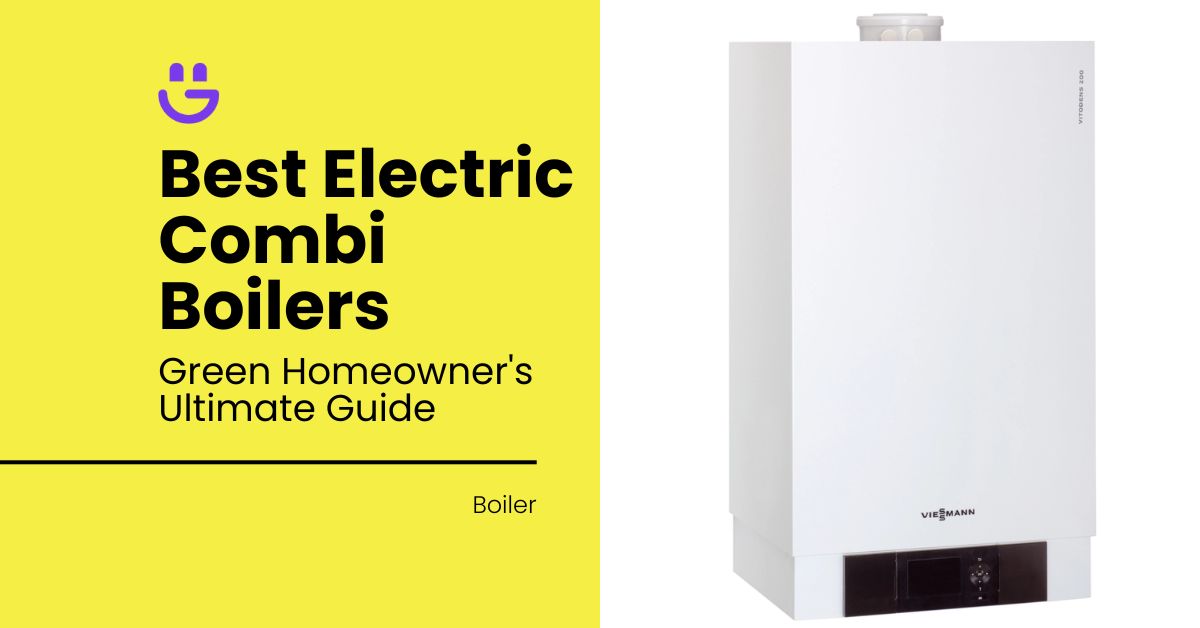





James Elston
Boiler Expert
James Elston is the top boiler replacement and heating expert at Eco Happy. He has over 20 years of experience in the industry, focusing on Gas Safe boiler installations and offering home-heating and energy-saving solutions to homeowners across the UK. From sourcing the most energy-efficient combi boiler to providing specialist heating advice, James ensures that Eco Happy maintains the highest standards and best customer service.